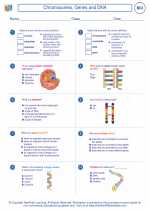Chemicals
Chemicals are the building blocks of matter, and they are all around us. They are substances with a distinct molecular composition that is produced by or used in a chemical process. In biology, chemicals play a crucial role in various cellular processes, including metabolism, energy production, and the synthesis of biomolecules. Understanding the properties and behavior of chemicals is essential for comprehending biological processes and phenomena.
Types of Chemicals
Chemicals can be classified into several categories based on their composition and properties:
- Elements: These are substances that cannot be broken down into simpler substances by chemical reactions. Examples include oxygen, carbon, and hydrogen.
- Compounds: Compounds are substances composed of two or more elements in fixed proportions. Water (H2O) and glucose (C6H12O6) are examples of compounds.
- Acids and Bases: These are substances that release hydrogen ions (acids) or hydroxide ions (bases) in aqueous solutions. They play a crucial role in maintaining pH balance in biological systems.
- Organic and Inorganic Compounds: Organic compounds contain carbon and are typically associated with living organisms, while inorganic compounds do not contain carbon and are often found in non-living matter.
- Macromolecules: These are large molecules essential for life, including carbohydrates, lipids, proteins, and nucleic acids.
Chemical Reactions
Chemical reactions involve the breaking and forming of chemical bonds, resulting in the transformation of substances into new products. In biological systems, chemical reactions drive essential processes such as cellular respiration, photosynthesis, and DNA replication. Understanding the principles of chemical reactions is crucial for comprehending how living organisms function at the molecular level.
Studying Chemicals in Biology
To effectively study the role of chemicals in biology, it is important to grasp fundamental concepts such as atomic structure, chemical bonding, and the properties of different types of chemicals. Additionally, understanding the principles of chemical reactions and the role of specific chemicals in biological processes is essential for success in biology.
Study Guide:
- Review the basic principles of atomic structure and the periodic table.
- Understand the types of chemical bonds, including covalent, ionic, and hydrogen bonds.
- Learn about the properties and functions of key biological macromolecules such as carbohydrates, lipids, proteins, and nucleic acids.
- Explore the role of acids, bases, and pH balance in biological systems.
- Study the chemical reactions involved in cellular respiration, photosynthesis, and DNA replication.
- Practice identifying different types of chemicals and their roles in specific biological processes.
By mastering the fundamental principles of chemicals in biology, you will be better equipped to understand the intricate workings of living organisms at the molecular level.
[Chemical] Related Worksheets and Study Guides:
.◂Biology Worksheets and Study Guides High School. Chromosomes, Genes and DNA

 Worksheet/Answer key
Worksheet/Answer key
 Worksheet/Answer key
Worksheet/Answer key
 Vocabulary/Answer key
Vocabulary/Answer key
 Vocabulary/Answer key
Vocabulary/Answer key
 Vocabulary/Answer key
Vocabulary/Answer key
